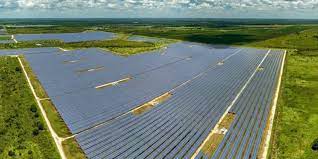Madagascar kick off tendering process for two solar projects whose capacity is 210MW. The larger plant will have a capacity of 200MW and will be located in Ihazolava. The second tender is construction of 10MW project in Mahajanga, northwest coast of the country.
According to Madagascar’s Ministry of Energy and Hydrocarbons, bidders for the construction of both plants need to submit preliminary reports. Noteworthy, the preliminary reports should indicate the nature and capacity of the facilities envisaged and the amount of investment.
Importantly, the deadline for application is 9 August 2023.
According to the International Renewable Energy Agency (IRENA), Madagascar has not installed any new solar capacity since 2018. Therefore, Madagascar has a cumulative capacity of 33 MW.
Importantly, the launch of these tenders is an encouraging step forward for Madagascar’s renewable energy sector. Additionally, this proves the country’s commitment to harnessing its solar energy potential and transitioning towards greener and sustainable energy landscape. These solar projects will add to the country’s energy evolution and inspire other nations to chase similar renewable energy initiatives.
Also Read: Madagascar Completes Construction of 2.6MW Solar Farm
Madagascar’s target for renewable energy using solar projects
Reportedly, Madagascar aims to attain 85% of renewable energy by 2030 as published to new energy policy in 2015 through solar projects. The construction and operation of these solar plants will create job opportunities in the local communities. Additionally, these projects will stimulate economic growth, and foster technological advancements. Moreover, by reducing its dependence on imported energy sources, Madagascar can enhance its energy security. Furthermore, the island will reduce vulnerability to fluctuating global energy prices.
Recently, Canadian-headquartered mining company, NextSource Materials completed work at its solar-hybrid power plant. The plant will power its Molo graphite mine in southern Madagascar. The project, developed by Kenyan company CrossBoundary Energy, has a capacity of 2.6MW, and NextSource expects annual production to reach 4GWh.
Investing in renewable energy infrastructure not only promotes clean energy generation but also presents economic opportunities.

